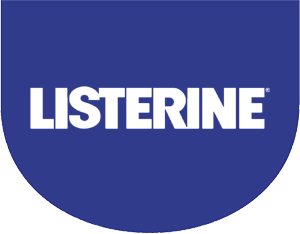Oral Medicine
Sore or swollen lips part 2: systemic causes
Dimitrios MalamosLips are the site of primary or secondary manifestations of various systemic infections; neoplasms and immune-related disorders. A plethora of bacteria, fungi and viruses can affect the lips causing...
Vascular lesions of the head and oral cavity – diagnosis and management
Gareth EliasVascular tumours are true neoplasms that exhibit pathologic vascular endothelial cell proliferation. Most of these are either infantile haemangiomas or congenital haemangiomas which differ in their...
Sore or swollen lips part 1: causes and diagnosis
Dimitrios MalamosThere is a wide range of causes of lip soreness/swelling, as seen in Table 1..
Mouth cancer for clinicians part 14: cancer prevention
Nicholas KalavrezosThe goal of primary prevention is to protect healthy people from developing cancer. Primary prevention is by far the most ideal approach; strategies include education of the public, high-risk...
Amyloidosis presenting as macroglossia and restricted tongue movement
Basim ES DawoudA 63-year-old female was referred to the Oral Medicine Clinic at the University Dental Hospital of Manchester by her general dental practitioner (GDP)..
Mouth cancer for clinicians part 13: life after mouth cancer treatment
Nicholas KalavrezosSurvival rates for mouth and oropharyngeal cancers have risen slightly over the last 20 years. The best outcome for overall 5-year survival rates for treated oral cancers is over 90% for lip cancer....
Mouth cancer for clinicians part 12: cancer treatment (chemotherapy and targeted therapy)
Nicholas KalavrezosChemotherapy is the use of anti-cancer (cytotoxic) drugs to destroy cancer cells. However, these agents also damage other rapidly-dividing cells, especially in epithelia and haematopoietic tissue, and...
Tackling the use of supari (areca nut) and smokeless tobacco products in the south asian community in the united kingdom
Milan ChandeAreca nut is the seed from the areca palm, which is grown in large quantities in Asia and countries surrounding it. Its uses vary from being chewed habitually in South Asia, to playing a role in...
Mouth cancer for clinicians part 11: cancer treatment (radiotherapy)
Nicholas KalavrezosRadiotherapy alone is used to treat some types of mouth and oropharyngeal cancers. RT is an extremely effective treatment for oral squamous cell carcinoma (OSCC), sometimes as a primary modality or as...
Oral cancer red flags – a case of misdiagnosis
Ruth E LambethA 65-year-old male presented to the emergency department with pain on the left-hand side of his mandible after feeling a ‘crack’ whilst eating cornflakes. The patient was a retired builder living with...
Spontaneous oral mucosal bleeding unmasking undiagnosed sarcoidosis: a case report
Harpreet KalsiA 39-year-old female was referred to the Acute Dental Care Department by her dentist, with a 4-day history of spontaneous gingival bleeding. At the time of her consultation she also complained of...
Mouth cancer for clinicians part 10: cancer treatment (surgery)
Nicholas KalavrezosSurgery and radiation are the only definitive treatment modalities for both early and locally advanced mouth cancer. Surgical resection, wherein the tumour is completely removed with uninvolved...
Return of the great pox
Crispian ScullyNow recognized as infection with the bacterium Treponema pallidum and known for centuries, a syphilis epidemic broke out among the soldiers of Charles VIII of France. In 1495 he invaded Naples, and by...
Allergy to chlorhexidine
Michael N PembertonChlorhexidine is a widely used antiseptic with which all dental practitioners are familiar. It has been extensively used in dentistry, most frequently for the control of dental plaque and reduction of...
Mouth cancer for clinicians part 9: the patient and care team
Nicholas KalavrezosCoping with a diagnosis of cancer, both practically and emotionally, is taxing for all concerned. Patients are likely to feel very upset, frightened, confused and out of control. They need support. It...

